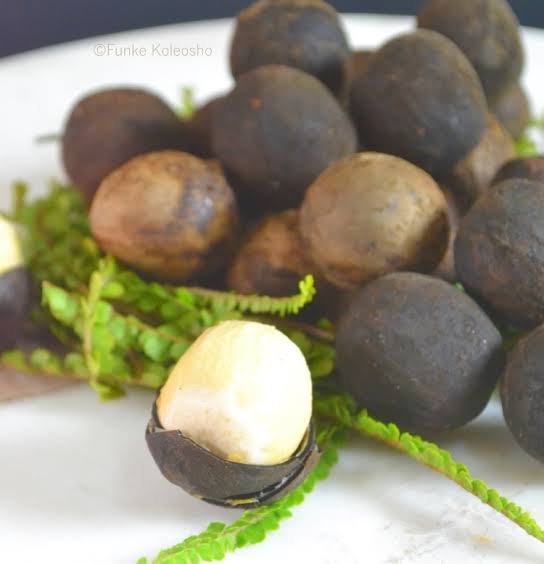African walnut is a powerful plant (fruit) that is notable for its remarkable benefits to human health and several other uses. African walnut is botanically known as Plukenetia conophora or Tetracarpidium conophora. The plant belongs to the family Euphorbiaceae. Different countries and tribes have different names for this fruit. In Nigeria, it is called ukpa by the southerners while the people of the southwest refer to it as ausa or asala. Other names given to this special fruit in Africa include Gabon nut, sida, howotou, conophora nut, mpengwa, atsan, ngak and so on.
Apart from its nut, researchers have revealed that other parts of this plant are highly important for medicinal, therapeutic and pharmaceutical reasons.
FEATURES
The African walnut is a climber in the sense that it grows as twine and then settles at the apex of a supporting tree forming a canopy and shade to other smaller plants and herbs. It is best planted very close to a tall strong tree that can offer strong support and balance to the heavy-weighted-plant especially when it has finally settled on the apex of the tree.
BENEFITS OF AFRICAN WALNUT
This fruit has many numerous benefits, such as prevention of cardiovascular diseases, treatment of infertility, promotes quality sleep and reduces the cholesterol level in the body. It is also helpful in the treatment of gastroenteritis diseases (dysentery, stomach pain, diarrhea and vomiting). It has antimicrobial properties used for treating disease-causing pathogen. Walnut is ideal for pregnant women to prevent the risk of miscarriages. It serves culinary purposes and the prevention of cancer. It boosts cognitive functioning, promotes healthy immune system, regulation of menstrual flow (the leaf of walnut), cures headache, relief from hiccups and from malarial attack. Its nuts, leaves and barks can be used to treat toothache, it also serves as an antidote (for counteracting poisons, insect stings etc.). This special fruit also serve commercial purposes (production of vulcanized oil, stand oil and wood varnish). If only for these benefits, if you haven’t, you should try the African walnut.

